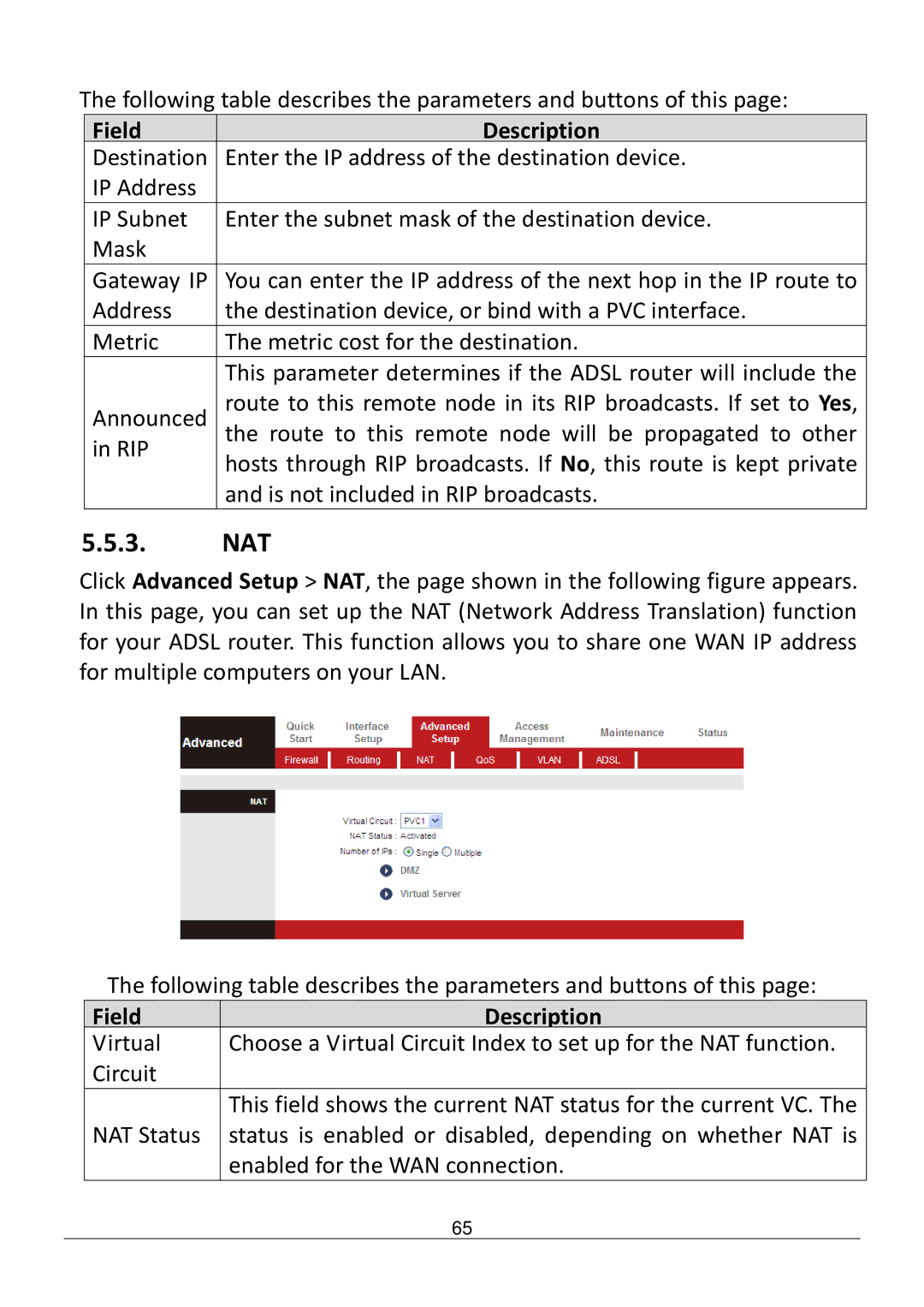
The following table describes the parameters and buttons of this page:
| Field |
| Description |
|
| Destination |
| Enter the IP address of the destination device. |
|
| IP Address |
|
|
|
| IP Subnet |
| Enter the subnet mask of the destination device. |
|
| Mask |
|
|
|
| Gateway IP |
| You can enter the IP address of the next hop in the IP route to |
|
| Address |
| the destination device, or bind with a PVC interface. |
|
| Metric |
| The metric cost for the destination. |
|
|
|
| This parameter determines if the ADSL router will include the |
|
| Announced |
| route to this remote node in its RIP broadcasts. If set to Yes, |
|
|
| the route to this remote node will be propagated to other |
| |
| in RIP |
| hosts through RIP broadcasts. If No, this route is kept private |
|
|
|
|
| |
|
|
| and is not included in RIP broadcasts. |
|
5.5.3.NAT
Click Advanced Setup > NAT, the page shown in the following figure appears. In this page, you can set up the NAT (Network Address Translation) function for your ADSL router. This function allows you to share one WAN IP address for multiple computers on your LAN.
The following table describes the parameters and buttons of this page:
| Field |
| Description |
|
| Virtual |
| Choose a Virtual Circuit Index to set up for the NAT function. |
|
| Circuit |
|
|
|
|
|
| This field shows the current NAT status for the current VC. The |
|
| NAT Status |
| status is enabled or disabled, depending on whether NAT is |
|
|
|
| enabled for the WAN connection. |
|
|
| 65 |
| |
